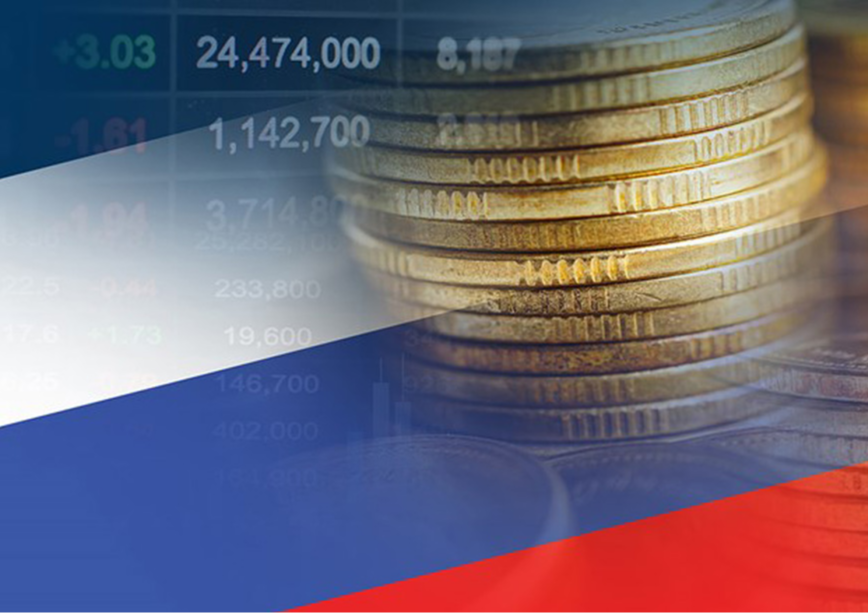Despite facing some of the most stringent economic sanctions in modern history, Russia’s economy has shown remarkable resilience in 2024. Western nations, led by the U.S. and European Union, imposed sanctions on Russia following its invasion of Ukraine, targeting key sectors such as banking, energy, and technology. These sanctions were intended to cripple Russia’s economic stability, but the country has managed to adapt and stabilize, particularly in its oil exports, which remain a lifeline for the Russian economy.
While Russia has seen contractions in some sectors, its overall economic performance in recent months has defied the expectations of many analysts, largely due to the country’s successful reorientation of its energy exports and effective government interventions.
Oil Exports: The Pillar of Economic Stability
One of the key factors contributing to Russia’s economic resilience has been the stabilization of its oil exports. Oil and gas have long been the backbone of Russia’s economy, accounting for a significant portion of government revenues and foreign currency reserves. Despite efforts by Western nations to curtail Russia’s ability to sell its energy products on the global market, the country has found new buyers, particularly in Asia.
Countries like China and India have become major importers of Russian crude oil, taking advantage of discounted prices. This shift in trade patterns has allowed Russia to maintain a steady flow of oil revenues, even as traditional markets in Europe have reduced their reliance on Russian energy. Additionally, Russia has taken steps to enhance its domestic oil production capabilities and expand its infrastructure for exporting to non-Western markets.
In the first half of 2024, Russian oil production remained relatively stable, averaging around 10 million barrels per day. Despite the sanctions, Russia’s oil revenues have been buoyed by rising global oil prices, driven by supply constraints in other parts of the world, including the Middle East and North America. This has enabled Moscow to fund its ongoing war efforts in Ukraine and shore up its currency, the ruble, which had initially plummeted when sanctions were first introduced.
Government Interventions and Economic Adaptation
Beyond its success in the energy sector, Russia’s economy has been propped up by a series of government interventions aimed at mitigating the impact of sanctions. The Russian government, led by President Vladimir Putin, has introduced capital controls, restricted foreign currency transactions, and encouraged import substitution to reduce the country’s reliance on Western goods. These measures have helped stabilize the ruble and prevent a total collapse of the banking system.
Additionally, the Central Bank of Russia has played a critical role in maintaining financial stability by raising interest rates and implementing currency interventions to counter inflationary pressures. The country has also built up substantial foreign currency reserves over the years, which have provided a cushion against external shocks. As a result, inflation, while still elevated, has been kept in check, and consumer demand has remained relatively strong.
Another significant development has been Russia’s efforts to diversify its economy. In response to the sanctions, the Russian government has promoted the growth of industries such as agriculture, manufacturing, and technology. This strategy has been met with mixed success, but certain sectors, particularly agriculture, have shown promising growth as Russia becomes more self-sufficient in food production.
Challenges Ahead
Despite these successes, Russia’s economy still faces significant challenges. The loss of access to Western markets, capital, and technology has limited the country’s growth potential in the long term. Russian businesses, particularly in high-tech industries, have struggled to replace the advanced technology and equipment that they used to import from the West. This could hamper future innovation and productivity in key sectors like telecommunications, aerospace, and manufacturing.
Furthermore, while Russia has found new markets for its oil, the discounts it has been forced to offer to countries like China and India have reduced its overall earnings. The longer-term outlook for oil demand, particularly as the world transitions to cleaner energy sources, also poses a threat to Russia’s economic model, which remains heavily dependent on fossil fuels.
Additionally, the ongoing war in Ukraine continues to drain resources from the Russian economy. Military expenditures remain high, and the prolonged conflict has deterred foreign investment and led to widespread uncertainty about the future of Russia’s economic relations with the rest of the world.
Global Implications
Russia’s ability to weather sanctions has broader implications for the global economy and geopolitics. It has demonstrated the limitations of economic sanctions as a tool for influencing the behavior of large, resource-rich countries, particularly when they can find alternative markets for their key exports. This could encourage other nations facing sanctions, such as Iran or Venezuela, to explore similar strategies.
Moreover, the shift in global energy trade, with Russia redirecting its exports to Asia, is reshaping the global geopolitical landscape. Europe’s efforts to reduce its dependence on Russian energy have accelerated its transition to renewable energy sources, while Russia’s pivot to Asia has strengthened its ties with China, potentially altering the balance of power in the region.
While Russia’s economy has shown resilience in the face of unprecedented sanctions, the long-term sustainability of its growth model remains in question. The country’s reliance on oil revenues and its ability to adapt to a changing global landscape will be critical factors determining its future economic trajectory.

